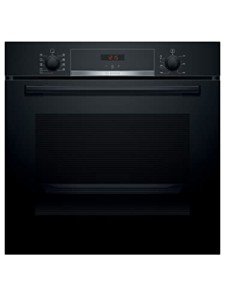9 Signs You're A Builtin Oven Expert
페이지 정보

본문

The Comprehensive Guide to Built-In Ovens: Features, Benefits, and FAQs
Built-in ovens are a popular choice for contemporary cooking areas, offering flexibility, efficiency, and a streamlined style that integrates seamlessly into cabinetry. This article will explore the different elements of built-in inbuilt ovens, including their features, advantages, installation options, maintenance ideas, and responses to typically asked questions.
What is a Built-In Oven?
A built-in oven is created to be set up within kitchen cabinetry and is offered in different setups, such as single or double ovens. Unlike freestanding ovens, built-in designs supply a streamlined appearance and provide more versatility in kitchen style. They are available bulit in oven electric, gas, and Biggest Built In Ovens steam choices, dealing with a series of cooking preferences.
Functions of Built-In Ovens
buy built in oven-in ovens are packed with functions that boost cooking experiences. Here are a few of the most typical features to think about:
| Feature | Description |
|---|---|
| Self-Cleaning | Many designs include a self-cleaning function that burns residue at heats, simplifying maintenance. |
| Convection Cooking | This feature uses a fan to circulate hot air, cooking food more evenly and quickly. |
| Smart Technology | Some ovens come geared up with Wi-Fi connection, allowing users to control the oven remotely through mobile phone. |
| Several Cooking Modes | Consist of options such as baking, broiling, roasting, and air frying, offering versatility for different meals. |
| Temperature Probe | Keeps an eye on the internal temperature level of food, guaranteeing perfectly prepared meals whenever. |
| Sleek Design Options | Readily available in various surfaces (stainless steel, black, white) to match kitchen decoration. |
Advantages of Built-In Ovens
The setup of a built-in oven brings numerous advantages to any kitchen:
- Space Efficiency: Built-in fitted ovens take full advantage of kitchen space, offering a clean and orderly appearance without compromising functionality.
- Improved Cooking Performance: With sophisticated features like convection cooking and exact temperature level controls, built-in ovens often exceed traditional models.
- Design Flexibility: These ovens can be installed at eye level, enabling for easy gain access to without bending down, which can be particularly helpful for people with physical limitations.
- Enhanced Resale Value: A well-designed kitchen with top quality built-in appliances may interest prospective buyers, enhancing overall property worth.
- Customization Options: Many brands offer personalized styles that fit the particular measurements and visual of specific kitchens.
Setup Options
When selecting a built-in oven, understanding the setup alternatives is important. Here are the most common setups:
Single Built-In Oven: Ideal for smaller kitchen areas, these systems use enough space to cook a range of dishes at the same time, best for daily cooking.
Double Built-In Oven: Best suited for passionate cooks and large households, double ovens enable simultaneous cooking at 2 various temperatures, perfect for meals that need diverse cooking methods.
Combination Steam and Oven: A hybrid option that integrates the advantages of traditional baking with steam cooking. This choice is outstanding for keeping wetness in foods, making it ideal for baking bread or roasting meats.
Maintenance Tips for Built-In Ovens
Maintaining a built-in oven is vital for its longevity and ideal performance. Here are some useful upkeep ideas:
Regular Cleaning: Use the self-cleaning function when necessary, and clean down the outside and interior surface areas frequently to prevent grease buildup.
Inspect the Seals: Inspect the oven door seals for any wear or damage to ensure appropriate insulation and cooking efficiency.
Temperature level Calibration: Occasionally test the temperature precision using an oven thermometer, specifically if cooking times appear longer than usual.
Ventilation: Ensure adequate ventilation around the oven to avoid getting too hot, specifically for built-in models that might be surrounded by cabinets.
Frequently Asked Questions About Built-In Ovens
1. Are built-in ovens more expensive than freestanding models?Yes, built-in ovens tend to be more pricey due to their design, installation requirements, and extra functions. However, their advantages can validate the expense bulit in oven the long run.
2. Can you set up a built-in oven yourself?While some handy people might try to install a built-in oven, it is suggested to employ a professional to make sure correct installation, ventilation, and safety requirements.
3. What is the average life-span of a built-in oven?The common life expectancy of a built-in oven is around 10 to 15 years, depending on usage and upkeep. Routine care can help extend its durability.
4. Are built-in ovens energy effective?Lots of modern-day Biggest built in ovens-in ovens are designed with energy effectiveness in mind, including features like insulation and exact temperature controls that might reduce energy intake compared to older designs.
5. Can a built-in oven be repaired if it breaks?Yes, built-in ovens can frequently be fixed. It is recommended to get in touch with a certified professional for medical diagnoses and repairs to make sure security and compliance with warranty contracts.
Built-in ovens are an excellent addition to any modern kitchen, offering a combination of style, performance, and advanced cooking features. With the right knowledge about their functions, advantages, and upkeep, homeowners can make educated options to improve their cooking experiences. As kitchen design trends continue to develop, the built-in oven remains a staple for those looking to blend visual appeals with effectiveness in their cooking spaces.

- 이전글How Built In Single Oven Became The Hottest Trend Of 2024 25.05.20
- 다음글What Is The Best Way To Spot The Car Stolen With Keys In Ignition Insurance That's Right For You 25.05.20
댓글목록
등록된 댓글이 없습니다.



